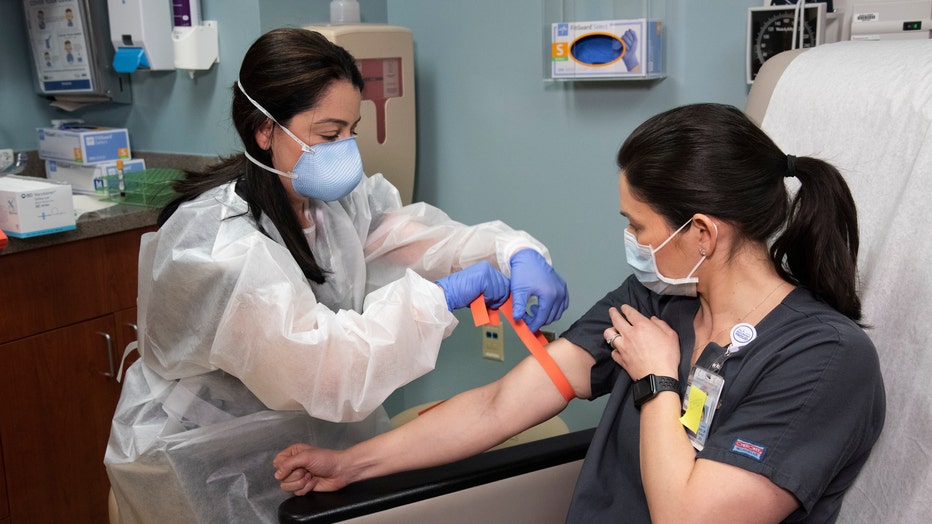Beaumont starting nation’s largest serological study for COVID-19 antibodies
(FOX 2) - Beaumont Health is starting a new COVID-19 antibodies test that’s the largest serological testing study happening in the nation right now.
The study will begin to answer whether COVID-19 antibodies offer any protection once the patient who’s been infected recovers.

Beaumont to begin testing for COVID-19 antibodies across its 38,000 employees
Beaumont Health is starting a new COVID-19 antibodies test that’s the largest serological testing study happening in the nation right now.
Serological blood testing detects antibodies the body creates to fight infection. In the case of COVID-19, antibodies might develop as soon as 3 to 6 days after infection. Even after the recovery from COVID-19, antibodies remain.
In many other infections, antibodies offer immunity against reinfection and researchers are hoping that will be the case here with COVID-19.
Beaumont’s test will also look at ways to better understand how the disease is transmitted, especially for those who aren’t showing symptoms.
According to the Centers for Disease Control and Prevention, as many as 25 to 50% of people with COVID-19 might not show symptoms. However, those individuals could still spread the disease to others.
Beaumont's serological testing study will start solving this mystery by identifying the number of people across its 38,000 employees and thousands of affiliates who have COVID-19 antibodies who never reported any symptoms. Participation is voluntary.

Rebecca Bacarella, from Beaumont Laboratory, the first employee to register and have blood drawn. Rita Hanna, phlebotomy, doing the blood draw.
Beaumont will rely on phlebotomists from across the region to help draw blood from study participants.
At a minimum, participants will have their blood drawn twice over two or more weeks to help better understand the rate of new infections and to assess persistence of COVID-19 antibodies.
"I believe having antibodies against COVID-19 will protect people from getting infected again and so do many other physicians. In Germany, there is a plan to give people 'immunity passports' if they can show they have antibodies to help them get back to work. This study will help prove that antibodies protect those who have them. It is our hope that this study provides a template for others to conduct similar research that will collectively clarify many unknowns of COVID-19," Beaumont's Director of Infectious Diseases Research Dr. Matthew Sims said.
Beaumont, which has 38,000 employees, intends to use data collected through this study as part of its own return to work process.
This study may also serve as a model for how other businesses get their employees back to work.
Doctors expect early results in about a month, a basic understanding in 3-6 months and final results in a year, though they plan to continue testing for 5-7 years.

